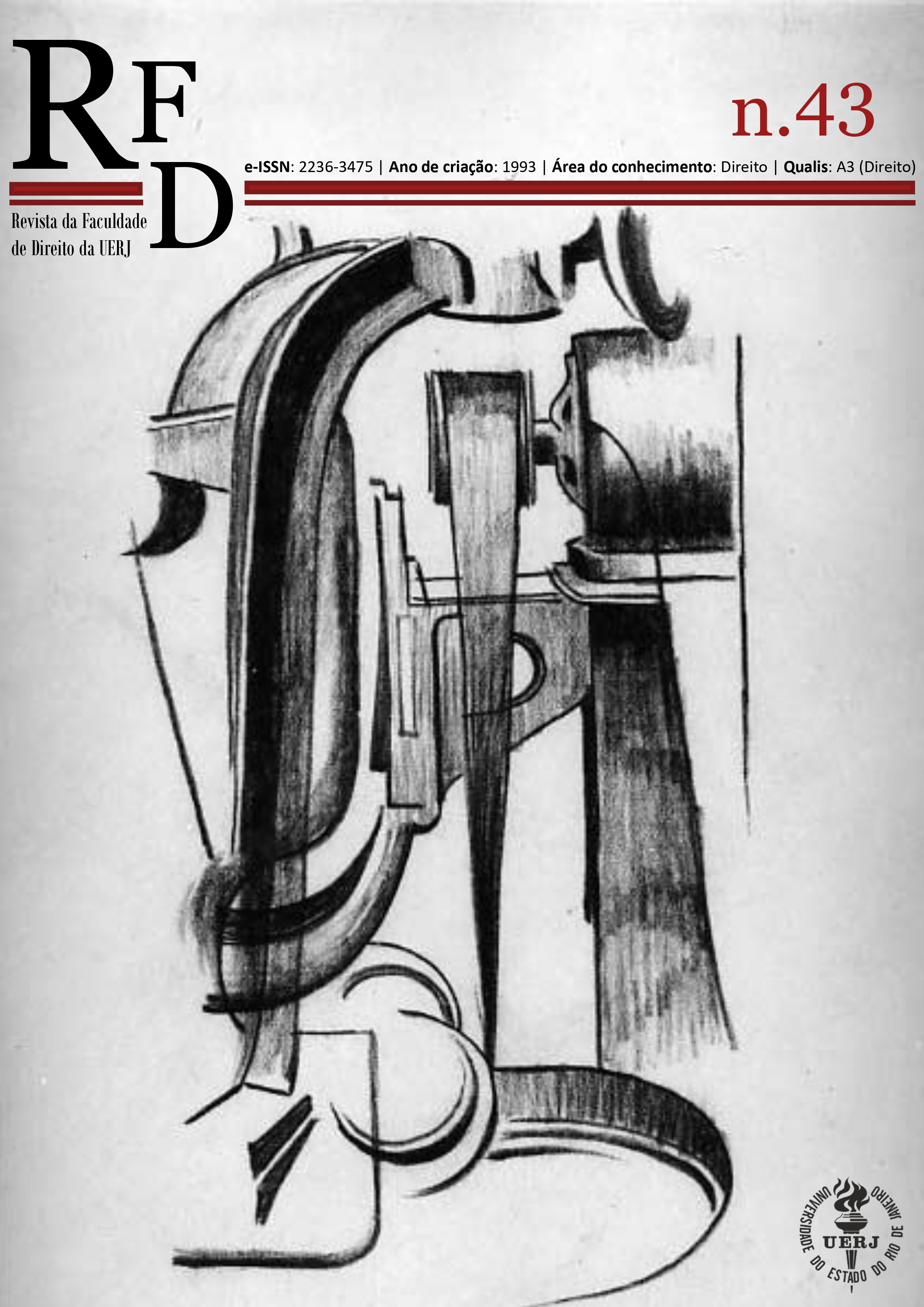POSSIBILIDADE DE EMENDA CONSTITUCIONAL PARA ABOLIR O DEVER DO VOTO NO BRASIL
DOI:
https://doi.org/10.12957/rfd.2024.75176Palavras-chave:
Abolir, Dever, Voto, ConstituiçãoResumo
É possível abolir o dever do voto no Brasil por meio de emenda constitucional? O objetivo geral do presente artigo é avaliar o rigoroso processo de reforma da Constituição conducente à abolição do voto obrigatório, e tem os seguintes objetivos específicos: analisar as limitações ao poder de reforma da Constituição; e, avaliar o sistema de voto no Brasil e nos países desenvolvidos. A pesquisa é baseada em manuais de direito constitucional, artigos científicos e jurisprudência dos Tribunais Superiores. A pesquisa teve abordagem quali-quantitativa. Parte da hipótese de que a obrigatoriedade do voto não é a melhor maneira para se desenvolver uma nação. Caracteriza-se como pesquisa descritiva que explana o processo legislativo das emendas constitucionais e suas limitações por meio da revisão da literatura e pesquisa empírica mediante consulta ao site do Supremo Tribunal Federal (STF). É possível concluir que abolir o dever fundamental de votar no Brasil por meio de emenda constitucional, pois tal modificação não fere o núcleo essencial da cláusula pétrea contida no artigo 60 da Constituição.
Palavras-chave: Abolir; Dever; Voto; Constituição.
Downloads
Publicado
Como Citar
Edição
Seção
Licença
Direitos Autorais
oArtigos publicados na Revista da Faculdade de Direito da UERJ (RFD/UERJ)
Os Direitos autorais dos artigos publicados pertencem à Revista da Faculdade de Direito da UERJ (RFD/UERJ). É permitida a reprodução total ou parcial dos artigos desde que citada a fonte.
oReprodução parcial de outras publicações
Artigos submetidos que contiverem partes de texto extraídas de outras publicações deverão obedecer aos limites especificados para garantir originalidade do trabalho submetido. Plágio em todas as suas formas constitui comportamento antiético e é inaceitável.
Recomenda-se evitar a reprodução de tabelas e ilustrações, extraídas de outras publicações. O artigo que contiver reprodução de uma ou mais tabelas e/ou ilustrações de outras publicações só será encaminhado para análise se vier acompanhado de permissão escrita do detentor do direito autoral do trabalho original para a reprodução especificada na Revista da Faculdade de Direito da UERJ (RFD/UERJ). A permissão deve ser endereçada ao autor do trabalho submetido. Em nenhuma circunstância a Revista da Faculdade de Direito da UERJ (RFD/UERJ) e os autores dos trabalhos publicados nesta revista repassarão direitos assim obtidos.
·Os trabalhos não aceitos para a publicação serão devolvidos aos autores, se solicitado.
A Revista da Faculdade de Direito está licenciada com uma Licença Creative Commons Atribuição 4.0 Internacional.
Este trabalho está licenciado sob uma Licença Creative Commons 4.0, Atribuição-Sem Derivações.
Esta licença permite copiar e redistribuir o material em qualquer suporte ou format para qualquer fim, mesmo que comercial, desde de que citada a autoria original.











